There’s no need to reinvent the wheel.
Ever heard that before? It’s excellent advice for virtually every job, task, industry, and endeavor. If you have something that works, use it.
Build off it. Adapt it. There’s no need to start from nothing
And when it comes to your content marketing, it’ll not only save you time, but it can deliver big, big results.
How so? By repurposing content you’ve already created.
“Repurposing your content opens the doors to reaching more people and breathes life back into old posts that you know are well written and highly informative.” ~Elna Cain, Professional B2B Writer
29% of top marketers repurpose their best content, while 27% listed producing enough quality content as their biggest challenge in a separate survey.
Overall, not having enough time, the quality of their content, creating that content, scaling content creation, and generating ideas were the top five most mentioned challenges facing the modern marketer.
The benefits of repurposing content? Those top five challenges are alleviated and made easier.
You could brainstorm new ideas, conduct research, draft, revise, polish, a/b test headlines and blurbs, publish, and promote a new blog post every few days…
Or you could take an existing asset that’s already a winner, repurpose it, and promote, promote, promote.
Which one sounds like the better use of your time?
What is Repurposing Content?
It’s exactly what it sounds like.
Repurposing content simply means taking an existing piece of content and using it in a new way for a new audience.
Blog series to ebook, for example. Or infographic to video.
There’s no shortage of transformations you could make. Marketers use a wide variety of channels, types, and formats for their content.
Videos, illustrations, infographics, ebooks, white papers, webinars, case studies, podcasts, charts, graphs, blog posts, quizzes, slide decks, reports, and on and on.
In fact, releasing quality content as only one type is really doing it and your audience a disservice.
Why Should Your Website Repurpose Content?
To begin with, not everyone likes blogs. Or videos. Or white papers. Or infographics.
If you spend hours, days, or weeks creating something spectacular, and you release it to the world as “just” a blog, many people will never give it a second look.
Content marketing is about getting as many eyes on it as possible.
Eyes on it means traffic, traffic means shares and interest, shares mean more eyes and greater awareness which generates still more eyes on it, which means more prospects and potential for conversion, and round and round it goes.
“Content marketing’s purpose is to attract and retain customers by consistently creating and curating relevant and valuable content with the intention of changing or enhancing consumer behavior. It is an ongoing process that is best integrated into your overall marketing strategy, and it focuses on owning media, not renting it.” ~Content Marketing Institute
Attract and retain customers.
Let me ask you this: are you only targeting blog readers? How about only those that watch videos online? Do you only want to keep those existing customers that enjoy infographics? Of course not. You would never intentionally limit yourself, your brand, or your product that way.
But without repurposing your content, that’s essentially what you’re doing. You’re not providing for them in the ways they want and appreciate.
Repurpose your best stuff, and it reaches more of your target audience in the places and ways they want to be reached.
Benefits of Repurposing Content
In addition to reaching a wider audience in the types and formats they want, the benefits of repurposing content include:
- Better chance to be seen. We spend a lot of time online: an average of 40 minutes/day on Youtube, 35 minutes on Facebook, and 15 minutes on Instagram. It adds up to 5 years and 4 months over our lives. That’s nothing to sneeze at, but it also means there’s a greater probability of someone missing that tweet about your new blog post than of seeing it. Social media moves too fast, and no one is online all the time. Want your content to be seen? You’ve got to repost and repurpose. The rule of seven tells us that the average consumer needs to see your message seven times before they buy into it…or you.
- The life expectancy of a social media post is relatively short: a typical tweet has a half-life of 24 minutes, a Facebook post reaches 75% of its maximum impressions in 2 hours and 30 minutes, and blog posts by top brands receive 50% of their comments in the first 6 hours. The takeaway? Repost, reschedule, and repurpose.
- Give your search engine optimization efforts a boost. A well written blog post will have several targeted keywords. Repurpose that content as an infographic or podcast, and you’ve increased the opportunities you have to rank for those keywords. A better rank – or multiple rankings – means a better chance to divert more of that search volume traffic to your digital doorstep. You’ve already done the keyword research, so maximize your possibility of succeeding with it.
- Save time for promotion, which is the lifeblood of content marketing. The less time you spend on brainstorming, researching, and creating content, the better. The majority of your time and effort should be spent on promoting it, not making it.
- Build your authority and reputation. The more people see your name attached to content on a particular topic or industry, the more your online reputation grows. You need to be seen as an expert. You want to be considered the go-to guy or gal. Authority is one of the six principles of persuasion as outlined by Robert Cialdini. Persuade, then convert.
- Increase your return-on-investment. Quality content takes time and money to create. Repurposing blogs, repurposing video content, and content recycling in general lets you squeeze extra value out of money you’ve already spent. Get more with no additional cost. That’s a business strategy everyone can get behind. That $500 blog post can be repurposed for next to nothing, giving you more bang for your original buck.
- Diversify your content catalog. No one wants the same thing for supper every night.
- Generate more opportunities for quality backlinks. People sharing your content creates backlinks to your site, and they’re a crucial and beneficial ranking factor.
It takes a great deal of resources – time, energy, and money – to produce a valuable, useful piece of high quality content.
Using it once is a waste. You wouldn’t buy a new laptop and log on just once, or use it just for emailing, right?
So why do that with your content? The mantra for content marketing in 2018 and beyond should be “repurpose, promote, repeat”.
4 Repurposing Content Examples For SaaS Business
By now, you should be convinced of the benefits of repurposing and are probably ready to see some content repurposing examples.
The proof, as they say, is in the pudding.
Does it really work? What exactly can be repurposed? Let’s take a closer look.
The No New Content Challenge
Buffer is one of the major players in the content curation and scheduling game.
Many of you likely use its social media management platform in your content marketing.
The Buffer Blog consistently produces high quality and useful content on everything from social and digital marketing to productivity and the customer experience.
For one month in 2015, they wanted to see what would happen if they repurposed their existing content rather than created new stuff.
With a blog that regularly saw 600,000-700,000 monthly visitors, the stakes were high.
Instead of writing new posts, they created new email campaigns and ebooks using old blog posts, updated outdated posts, created SlideShares and videos from blog posts, and republished to Medium.
The result?
While overall traffic dipped slightly, their organic search traffic was up by over 4%, the resulting SlideShares produced nearly 200,000 views, an ebook on social media tips curated from old posts brought in 2397 signups and downloads, and an email drip campaign called “The 7 Day Social Media 101” and a 25-day video course nabbed 17817 and 18185 (in the first 6 days alone) signups, respectively.
And all with no new content for 30 days. So, does repurposing content work? (hint: yes).
Matthew Woodward
SEO and affiliate marketing professional Matthew Woodward decided to repurpose and republish a couple of blog posts on LinkedIn Pulse. With minimal tweaking, he published with a link to a new landing page for an existing lead magnet.
The experiment garnered 332 new subscribers and a conversion rate of 76.15%.
Convince & Convert
Jay Baer of Convince & Convert creates a lot of content, including 3-minute informational videos.
In order to reach a bigger audience, he and his team began repurposing that video content as blog posts on the C&C website, LinkedIn Pulse, and Medium, and as podcasts (distributed via iTunes), effectively covering the text, video, and audio crowds.
Convince & Convert has been crowned the #1 content marketing blog in the world by CMI, attracting hundreds of thousands of potential prospects for their consulting services and marketing tools.
Moz
It you want to learn about all things SEO, you need look no further than Moz.
Their blog is chock-full of posts on everything from keyword research to link-building to audits and everything in-between.
Once a week since 2007, they’ve repurposed their best blog content as an engaging and informative video series called Whiteboard Friday.
It’s legendary in the industry. Iconic. And its fans are legion.
That kind of loyalty, advocacy, and brand recognition is priceless, bringing in a steady stream of referred traffic and leads.
A mind-boggling 11% of the top SaaS companies in the world do not blog.
That’s shocking at any time, but in 2018 that’s simply insane.
A blog is the foundation of any content marketing plan.
And a blog is the content bank from which you can pull and repurpose from now until the cows come home.
Blog. Promote. Repurpose. Promote. Succeed.
How to Repurpose Content in 2018
By this point, you may be thinking “Okay, okay, I get it. Repurposing content is extremely beneficial and efficient.” And you’d be right.
But, you’re probably also thinking “How do I do it?” It’s one thing to know why, but something else entirely to know how.
It’s easier than you might be expecting.
Identify the Posts Worthy of Republishing
If you’ve got a sizeable content catalog, deciding which ones deserve your repurpose attention is step one.
Head on over to your analytics dashboard and check to see what posts have been your best performers in the past month, past year, and possibly even past 4-5 years.
Look for those posts with the highest pageviews and/or average time on page.
Use a tool like BuzzSumo to find your most shared pieces.
These are the pieces resonating most with your audience and visitors.
This is the content most likely to benefit from a little repurposing magic.
For each asset, consider how you might be able to transform it.
Blog to video, video to transcript, podcast to infographic, series to ebook, and so on.
While you’re at it, be on the lookout for content that is either a) outdated, or b) a topic on which you have greater knowledge now than you did when you wrote it.
These can be updated and expanded with little effort, allowing you to promote the new and improved version.
“Content repurposing doesn’t just mean that you reuse an old piece of content again and again. True repurposing requires that we alter it to make it fresh and appealing to a new audience.” ~Garrett Moon, CEO and Co-founder of CoSchedule
Repurposing content takes little effort, not zero effort.
What themes are still relevant? What topics are still popular?
On what subjects do you have more to say? Find content that fits in to those categories, and you’ve got yourself a winner.
Turn Old Blog Posts into Fresh and Complete Guides
This is perhaps the easiest repurposing you can do, but don’t let that fool you into thinking it’s not worthwhile.
The world moves pretty fast.
Some industries move even faster.
Posts you wrote last year – or even several months ago – can already be outdated.
Sometimes the just need a few tweaks.
At other times, they might need a partial or complete rewrite. Either way, you end up with something “new” to promote on your channels.
Even better, take several blog posts that share a broad subject and combine them into one complete guide.
A post about gaining Instagram followers, using that platform for business, how to write an Instagram bio, and best practices for increasing engagement can join together to create a powerful “Complete Guide to Instagram for Business”.
The “complete” or “ultimate” or “definitive” guide-type posts will always be popular. Harness that with minimal effort.
Create White Papers and Infographics
What type of content do you think drives lead generation? You might be surprised to learn its white papers.
White papers are authoritative.
They cover a particular topic, presenting hard data and research to ultimately argue for a specific solution to a specific problem. They inform and persuade based on facts and evidence.
Done right, white papers build trust, increase your authority, and generate credibility for you and your brand.
They are research, data, chart, and graph heavy. Writing a white paper can be a time-consuming task.
But the don’t have to be. Your blog posts are full of data, graphics, and research already, right? Use that.
Combine several posts on the same basic subject, and you should have enough raw material to pull it together into a high quality white paper in half the time it would take to write one from scratch.
Use a template and save even more time. In the B2B sphere, they’re an absolute must.
And then we have infographics. Popular, powerful, and persuasive, a good infographic can disseminate information like few other types can. Consider:
- We process visual data 60,000x faster than text.
- It takes us just 13 milliseconds to process an image.
- Infographics are 30x more likely to be read than a text post.
- Infographics are liked and shared 3x more than any other content type.
- 74% of surveyed content marketers use them (tied for first), and 17% list them as the best performer in their marketing mix (second only to research/original data).
We are hardwired to understand and enjoy visuals, and infographics are very popular with both marketers and consumers alike.
What’s more, creating infographics from existing content assets is quick and easy.
Services like Visually can do it for you, or tools like Infogram, Easelly, and Canva allow you to do it yourself.
The data collection and research is the “hard” part…and that’s already done and ready to use.
Turn Posts into a Webinar
Few content types are as engaging as a webinar or live stream.
They allow you to share your expertise, build credibility, and connect, communicate, and engage with your customers and leads in real-time.
The best webinars focus on one specific topic that you understand exceedingly well and can dig deep on. They have a spectacular slide deck that supports and complements the “script” you’ve written beforehand.
“There’s a lot of logistical things to think about, so even if you think you know what you want to say, you’ll be surprised at how quickly you forget once you get into presentation mode. Create a list of the questions as they come in so you can keep them organized. Lastly, relax! The attendees are there to listen and learn, not judge.” ~Chris McHale, Nurture Marketing Specialist at WordStream
Your most popular posts are prime candidates for the webinar treatment. Identify them, use them to create your slide deck and script, and promote your upcoming webinar everywhere you can.
Service providers like WebinarNinja and GoToWebcast can help with the logistics and host hundreds if not thousands of attendees.
And once your webinar is finished, don’t forget to upload your slide deck to SlideShare, and post the recorded video to your blog. That’s 3-for-1. That’s repurposing like a boss.
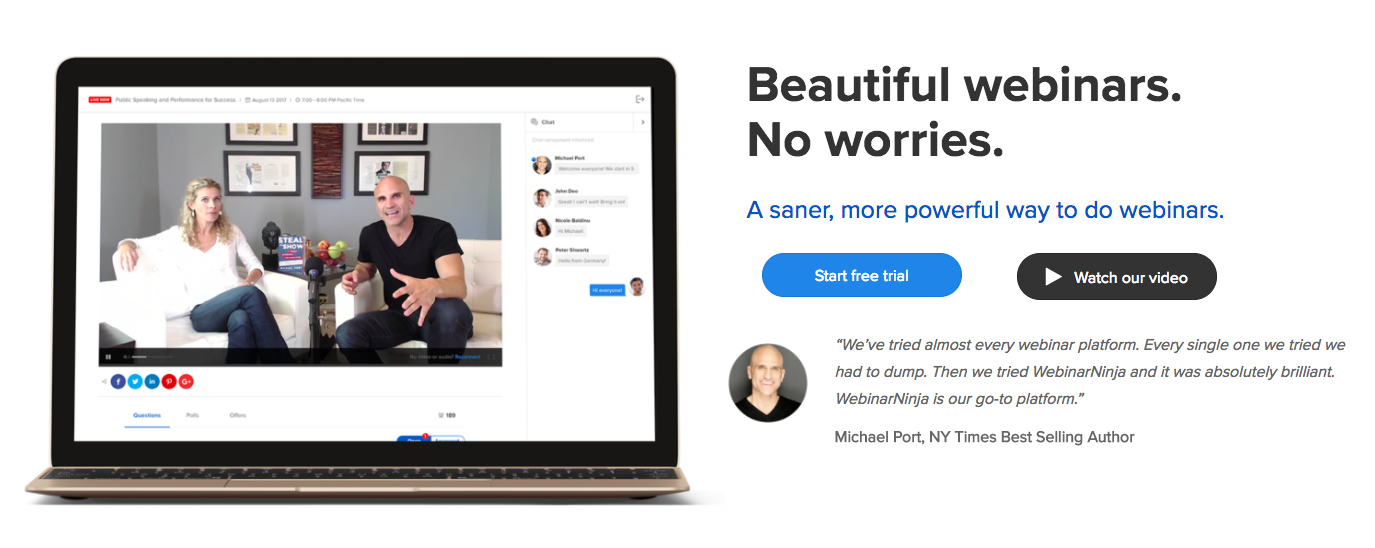
Create Videos
Think about how much video you consume on an average day.
A lot, right?
We love video. We seek it out. It rules the online roost:
- 55% of people watch video online every day.
- More video content is uploaded online every month than television has created in the past 30 years.
- Internet video will account for 80% of consumer internet traffic by 2019.
- 53% of consumers want to see more video content from marketers.
- Video posts have 135% greater organic reach than photo posts on Facebook.
- Brands that use video see 41% more traffic from search than brands that do not.
Repurpose your best content into a one-off or video series.
Record yourself and upload to YouTube or Skillshare.
If you’re camera shy, consider an animated video using Powtoon or GoAnimate.
A tool like VideoScribe automatically animates whatever you place on its canvas.
ScreenFlow lets you record your screen.
Whatever kind of video you want to make, a tool exists to help you get it done.
There are a lot of people who would rather watch than read, so give them what they want. Teach, inform, entertain, instruct, explain, and more.
Turn Posts into Ebooks
Taking several related posts and turning them into an ebook is a quick win.
You may need to fill it out a bit, write a few connecting paragraphs, and/or add a few more high quality visuals, but the bulk of the writing is ready to go.
Turning blog posts into ebooks is fast and easy for you, but they’re well regarded by people.
They carry more weight. They seem “better” than a blog post because they’re longer and more detailed.
They can be downloaded and carried with them wherever they go.
Darren Rowse of Problogger launched 31 Days to Build a Better Blog made up largely – though not exclusively – of repurposed blog material. The ebook remains one of his best sellers to this day.
You can share your ebook for free, use it as a lead magnet, sell it, or make it a reward in a contest or challenge. It’s entirely up to you.
An ebook gives an instant boost to your credibility and reputation.
Programs like Scrivener and Vellum allow you to save in a wide variety of formats, including Amazon Kindle, PDF, and iBooks. Maximum impact. Minimum effort.
Anyone can start a blog. But not everyone has their own series of ebooks. Stand out from the crowd.
Podcasts and Audio
Just as many people are visual learners and prefer videos and graphics, many people learn best by listening rather than reading.
Turning your best stuff into a podcast or audio file couldn’t be easier.
In fact, it may require little more than reading the post and injecting a bit of personality. That’s it.
Hate the sound of your voice? Hire someone else to do it for you. Believe it or not, Fiverr actually has a voiceover section. Who knows, you might just stumble upon the new voice of your brand.
Podcasts and audio files are fantastic because they not only reach a new audience, but much like an ebook, they carry an element of authority and sophistication.
Consumers can download them, and listen in their car, at home, on their commute, at rest, at work, or an the go.
That’s some serious reach. 44% of the American population has listened to a podcast, and 80% of them listen to all or most of it.
Services like Podomatic, PodBean, iTunes, and SoundCloud assist with everything from creation to editing, and hosting to promotion.
Increasingly popular, easily shared, and simple to do.
And Repurpose into the mix – it automatically converts your podcast to a video and shares to the most popular sites like YouTube and Facebook – and you have your bases covered.
Medium is a Good Platform for SaaS Business
Republishing your 5-star content on Medium can give you a big traffic and exposure boost.
And you’re literally just republishing content without making any changes (unless you want to, of course).
And before you start to worry about the dreaded “duplicate content penalty” from Google, don’t. It’s a myth. It doesn’t exist.
Medium boasts 60 million monthly readers, 140,000 new stories each week, and dozens of topics and categories.
Sign up, get started, and get sharing.
Think of it as half social network and half writing platform. It’s the best of both worlds.
Benjamin Hardy went from zero to 50,000 subscribers using Medium in only 16 months. How’s that sound?
Don’t Forget to Republish Older Posts
Finally, you don’t want to neglect your older posts.
Just because they’ve fallen off the radar, doesn’t mean they’re worthless. High quality, evergreen content can be reposted to tremendous effect.
We’ve already mentioned the short life span on a typical social media post.
The harsh reality is that most people won’t see it the first time around.
Share it again though, and you’ve increased the eyes on it. Share a third time, and it’s still more.
Reposting your content on a regular schedule will capture a bigger audience for it, reach people in different time zones, and generally increase your traffic.
Some studies have shown it’s possible to get 75% of the engagement of the original post. What’s not to like?
So share it. Share it again later that day, the next day, next week, next month, and two months from now. Experiment with the best times to share on different platforms. Use a scheduler like Buffer or Hootsuite to do it all for you.
You’ve already put in the effort. Don’t let it go to waste.
Conclusion
Your content is the heart of your marketing. Make it work for you by using a consistent repurpose and reschedule plan.
“Create less, promote more.” ~Salma Jafri
Everything can be repurposed into something else.
Old is new again.
The less time you spend on creating and the more time you spend on promoting, the higher the return you’ll see on content marketing.
You don’t need to reinvent the wheel every time you need to move something from Point A to Point B.
You might need to change it up a bit – size of wheel, number of wheels, material of wheel – but it’s still fundamentally the same thing.
The same goes for your content.
Slide deck into video. Podcast into transcript. Blog series into webinar. Data into infographic. The possibilities are endless.
Have you tried repurposing your best content? What strategies and tools have you tried? Leave your comments below:
About the Author: Neil Patel is the cofounder of Neil Patel Digital.
from The Kissmetrics Marketing Blog https://ift.tt/2w457sr

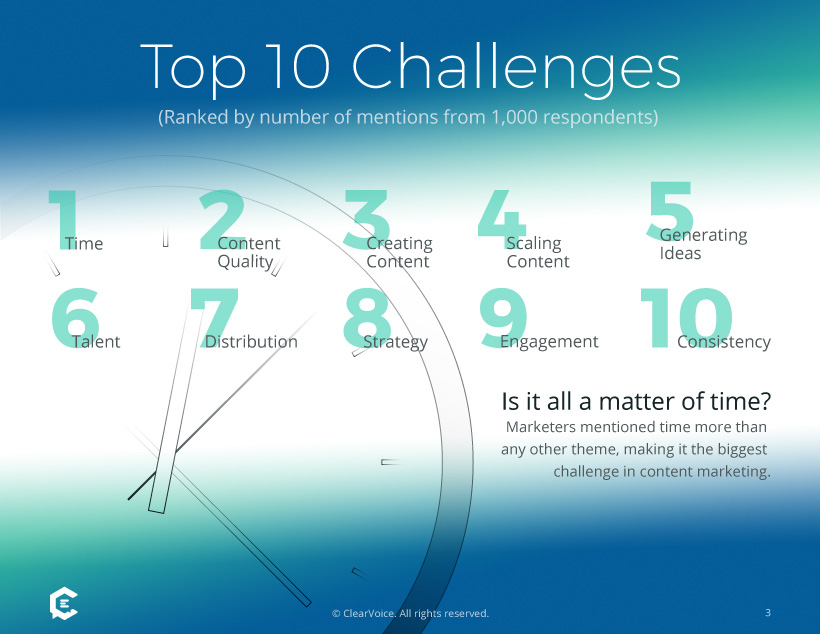
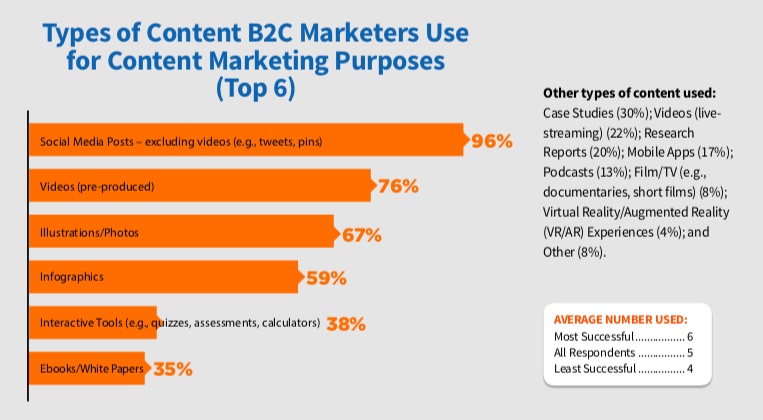
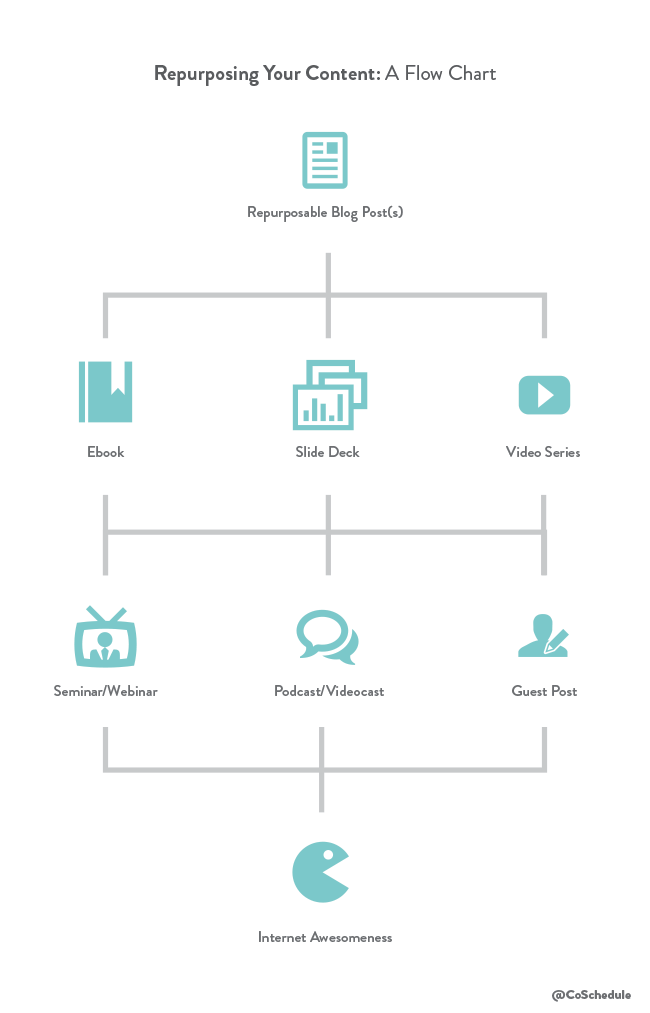

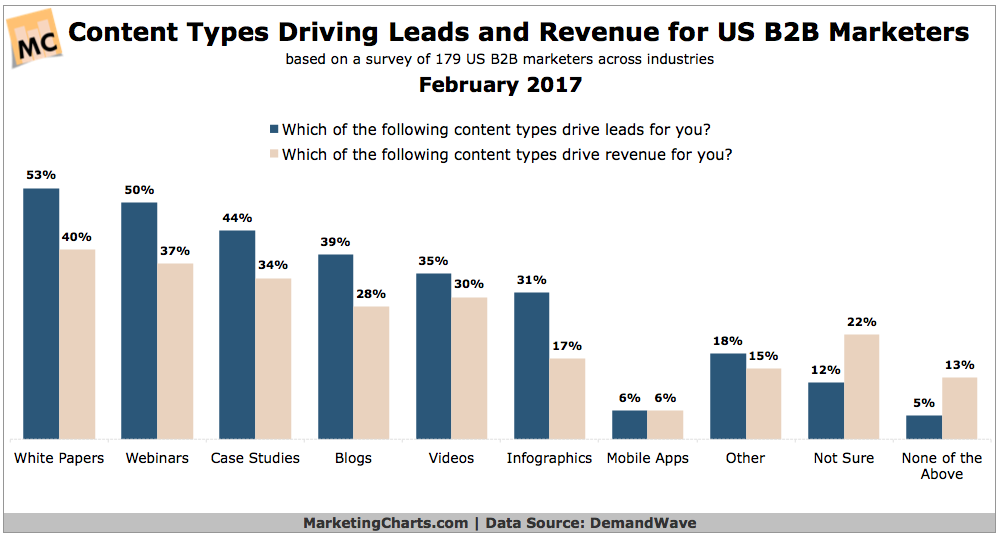
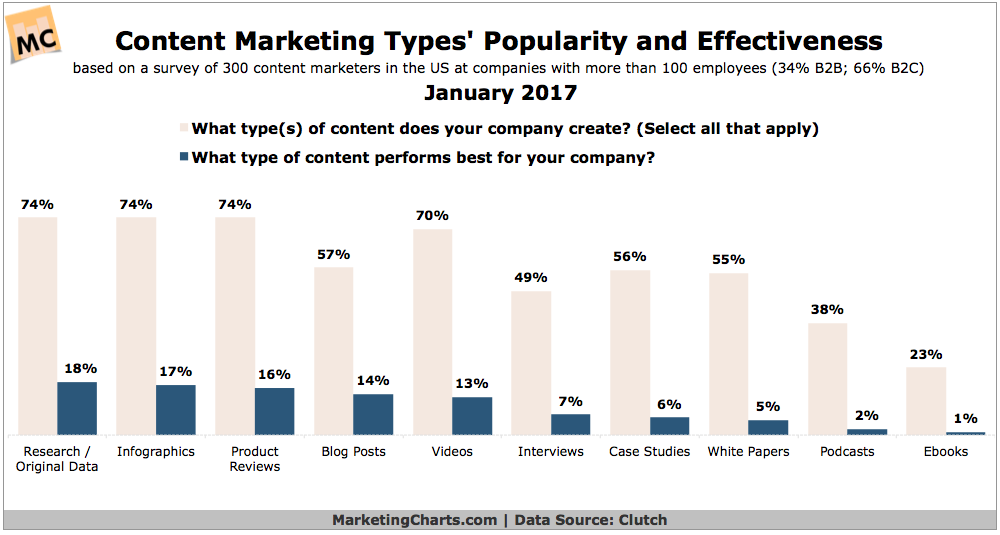
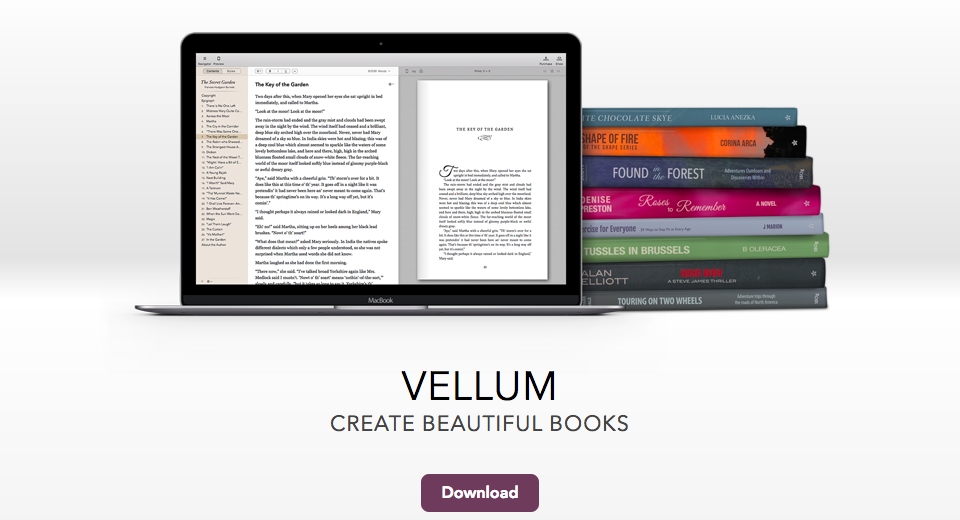
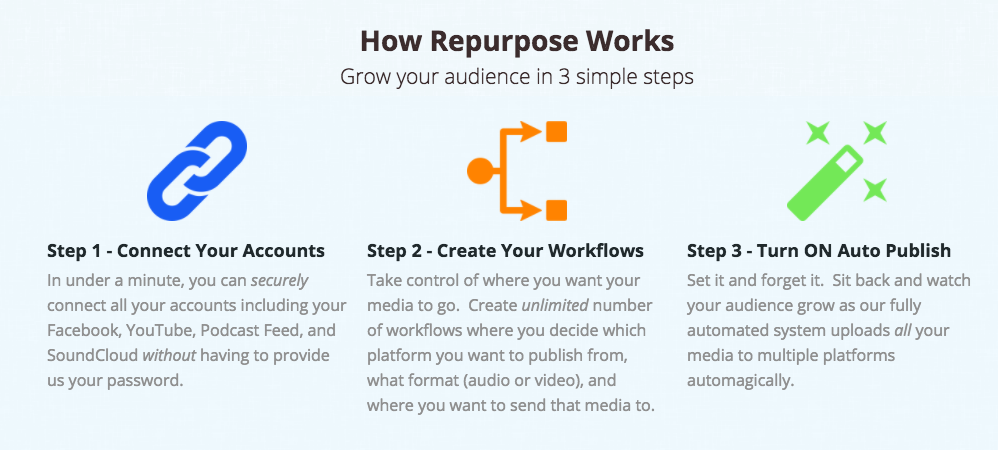
No comments:
Post a Comment